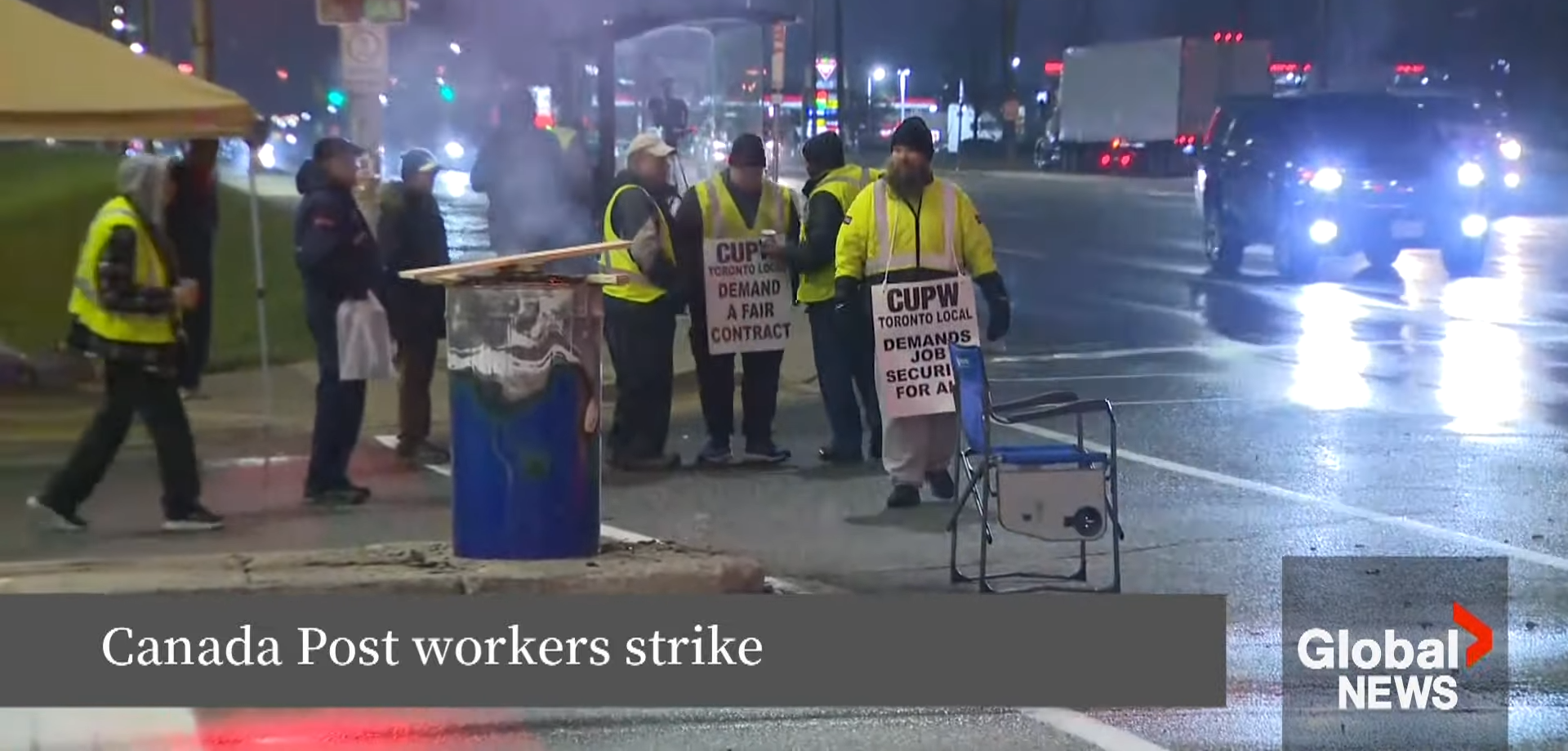After postal workers issued a strike notice on November 12, Canada’s big newsrooms scrambled to push out articles on the possible work stoppage. Their coverage has much to say about the impact a strike could have on businesses, Christmas shoppers, and small towns. But one thing is missing from all these articles: the voices of postal workers.
The North Star has examined the output of national media services such as the CBC, CTV, and the National Post. While a few of the big outlets deigned to talk to union bureaucrats, it is difficult or impossible to find any input from the workers in these pieces.
This is not simply a matter of journalists deferring to spokespeople. For instance, CTV ran a fairly lengthy article entitled “Here’s how a potential Canada Post strike may affect Canadians.”
Their “analysis” included contributions from small business owners and other members of the public who had contacted CTV via email. One contributor complained of potential shipping delays for her herbal tea business. Another asserted that Canada “doesn’t really need” a public postal service and said he usually buys products from Amazon.

On November 13, CBC News hosted a call-in show inviting viewers to respond to the question, “How would disruptions at the ports or Canada Post affect you?” The same program interviewed a CUPW local president who is also a mail carrier. However, the anchor failed to ask her about the workers’ demands, working conditions, or living conditions, preferring inane questions such as “How are you feeling?”
A November 12 CBC article sought quotes from Canada Post, Labour Minister Steve MacKinnion, CUPW President Jan Simpson, and a small business owner in Toronto. Again, there were no comments from actual postal workers. CBC’s coverage at the local level was also centred on impacts to small businesses.
The National Post has so far only penned one article on the topic. It included no statements from the union or from workers but made sure to include directives from CIBC and Toronto Hydro urging customers to pay their bills online.
The story is much the same for Global News and the Toronto Star. Only The Globe and Mail published an article focusing on workplace conditions, but they also did not speak to any workers.
In Québec media, coverage took a more bizarre turn. Le Journal de Québec, owned by monopoly giant Québecor, ran a story about a small pharmacy’s Christmas party being “spoiled by the Canada Post strike.” Further down the article, a large subtitle reads: “No special law for now.”

Media for business owners, not workers
There is a clear trend in all of this coverage: the mainstream media are very interested in the opinions of governments, businesses, and “consumers”. They are decidedly less interested in what workers have to say.
Most Canadians do not own a business. The vast majority of working-age people in this country are workers. Their interests are ignored by Canada’s big media, while the interests of business owners small and large are always front and centre.
When ordinary working Canadians are represented in the media, the stories usually focus on their role in buying products and services from businesses. The result is that workers do not get to hear from people like them who are on the front lines of manufacturing those products and providing those services.
While union leadership plays an important role in labour disputes, they do not always have the same point of view as the workers on the ground. When newsrooms fail to go deeper to get the workers’ side of the story, they don’t just let down those workers, they also let down their readers.

